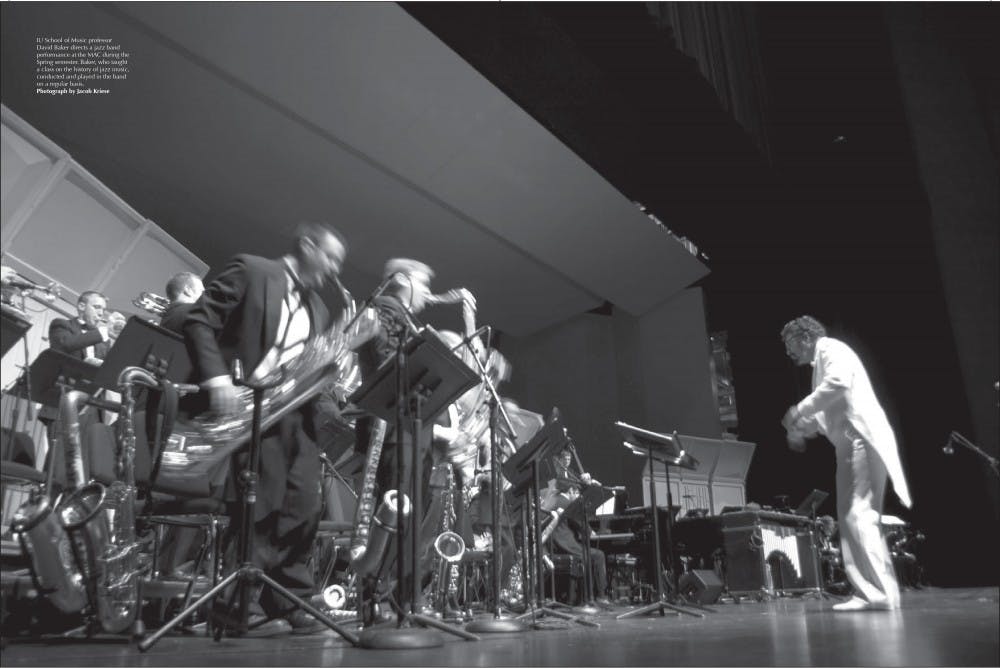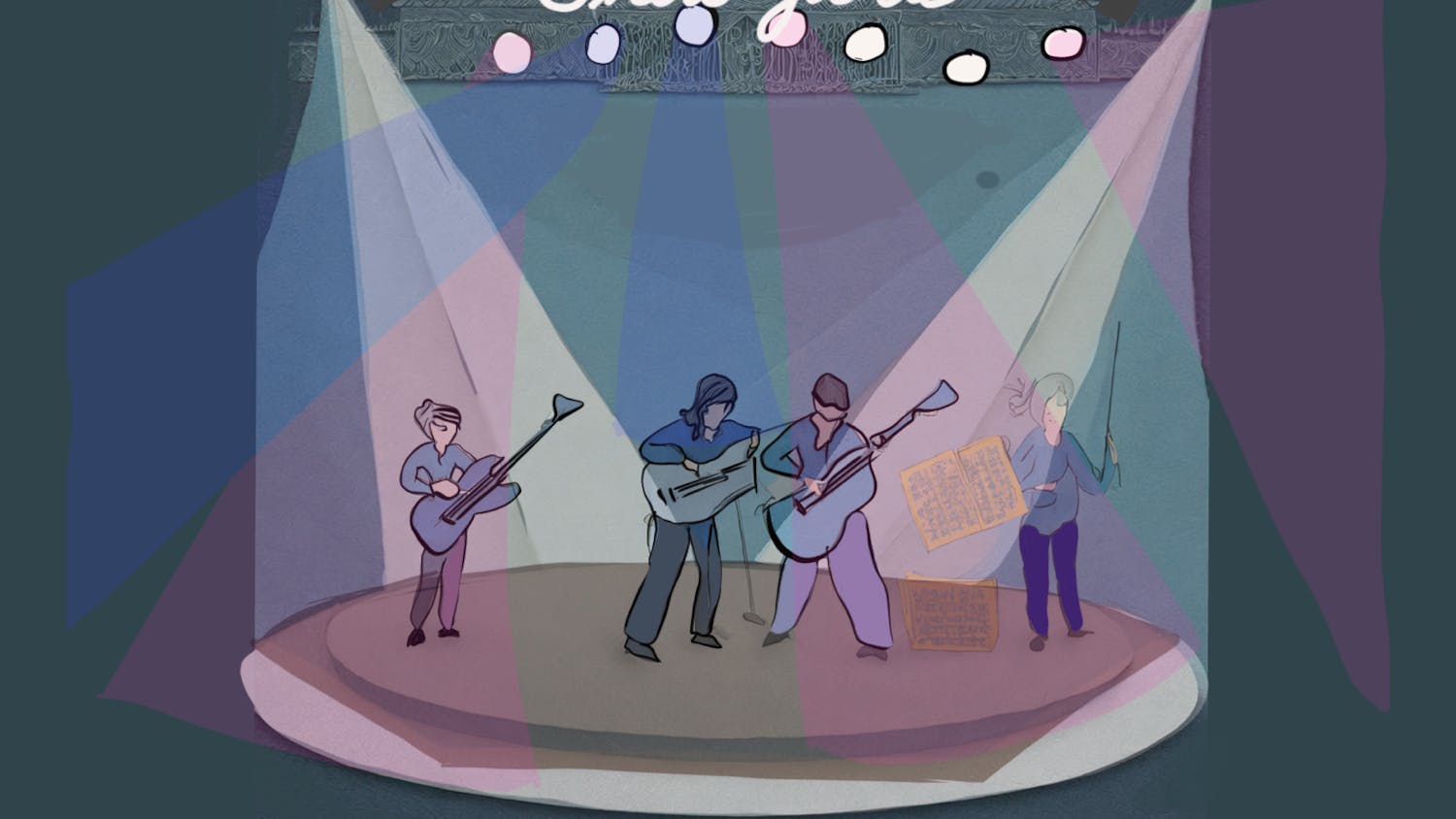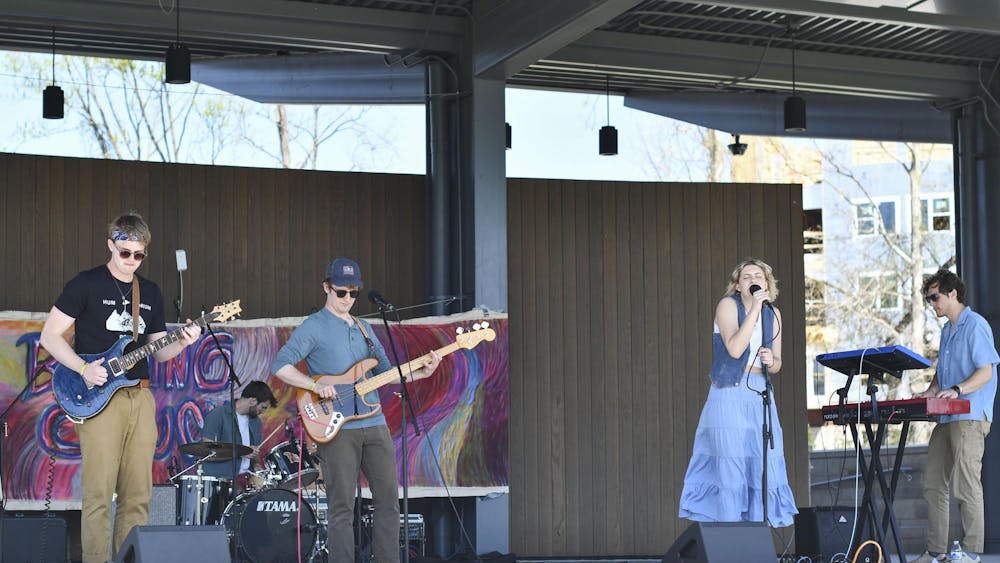David Baker changed the common perception that jazz could not be taught.
The Grammy and Pulitzer Prize-nominated composer, performer and teacher died March 26 at age 84, but his revolutionary methods that taught students to improvise will be used long into the future, his colleagues and students said.
Baker created a degree program for jazz music at IU at the request of the dean of the School of Music in 1966 after a performance career on the trombone and cello.
“The IU jazz program is David Baker,” author and musician Monika Herzig said. “He started it, he created it and he made it one of the best-known and highest quality programs nationally. That’s him and only him and nobody else.”
Herzig, now a senior lecturer at the School of Public and Environmental Affairs, got her doctorate at the music school in 1997. She said she considered Baker to be her mentor in becoming a jazz pianist and took many of his classes.
She then became his colleague and friend. In 2011, Baker’s 80th birthday was coming up and she said she decided to take on the task of writing a book, “David Baker: A Legacy in Music,” about his life.
“I realized that we have a treasure here,” Herzig said.
He always challenged students, Herzig said, but in an environment that made them feel like they were at home.
Baker had his own challenges to overcome, Herzig said. She said he originally wanted to be a classical trombone player, but his only option as a black man was jazz. When he auditioned for the Indianapolis Symphony, the conductor told him even though he was better than the other players, he couldn’t employ him because he was black.
His personal struggles did not make him bitter, senior Matthew Riggen said. Riggen was inspired to add jazz studies as a double major after he met Baker, because he saw how much Baker enjoyed playing, he said.
Riggen said during the last conversations he had with Baker, Baker said he had been lucky to have accomplished what he accomplished. He said he was proud of it and he was content.
“For someone to have gone through what he went through and to still decide to be the kind of person he was, it’s inspiring,” Riggen said.
Baker had a very individualized teaching style, Herzig said. As soon as someone came into his studio, he would be able to pinpoint that person’s skill level and what he or she needed. He would always remember students’ names.
The fact that Baker taught about things he had actually experienced made him a respected jazz authority, Herzig said. He had played with jazz greats and lived what he taught his students.
“When you put music in an academic setting, sometimes it can get separated from the actual music scene, but he was one of those guys where you knew that he was the real deal,” senior in jazz studies Quinn Sternberg said. “It was humbling just to be around someone with that wealth of knowledge and experience.”
Sternberg never thought he would be composing his own music, he said. Then Baker invited him to participate in the Ravinia’s Steans Music Institute’s summer program for jazz musicians.
The weeklong program required Sternberg and the other participants to compose music for every rehearsal. Now, Sternberg is going to record his music that would not have existed if not for Baker’s encouragement, he said.
“He was always really supportive, saying that he believed I was capable of really succeeding in the music industry,” Sternberg said. “He talked that way to everyone.”
Baker will be one of the first class of IU alumni to be inducted into the music school’s new Jazz Alumni Hall of Fame on April 23 during the annual Jazz Celebration concert.
Thomas Walsh, chair of the jazz studies department and saxophone professor, said Baker’s encouragement as an educator is the legacy he will leave behind.
Baker was the first person to codify the language of jazz, Walsh said. Baker created methods of teaching bebop, which he believed to be the universal language of jazz, that are now employed around the world and will continue to benefit students for generations to come.
“In the end, what characterized David more than anything was his brilliance as a person and an educator, his care for his students and how encouraging he was,” Walsh said. “‘Encouraging’ is a word that I use over and over again when I talk about David because he was someone who had a profound impact on people. He made people feel like they could do great things.”






